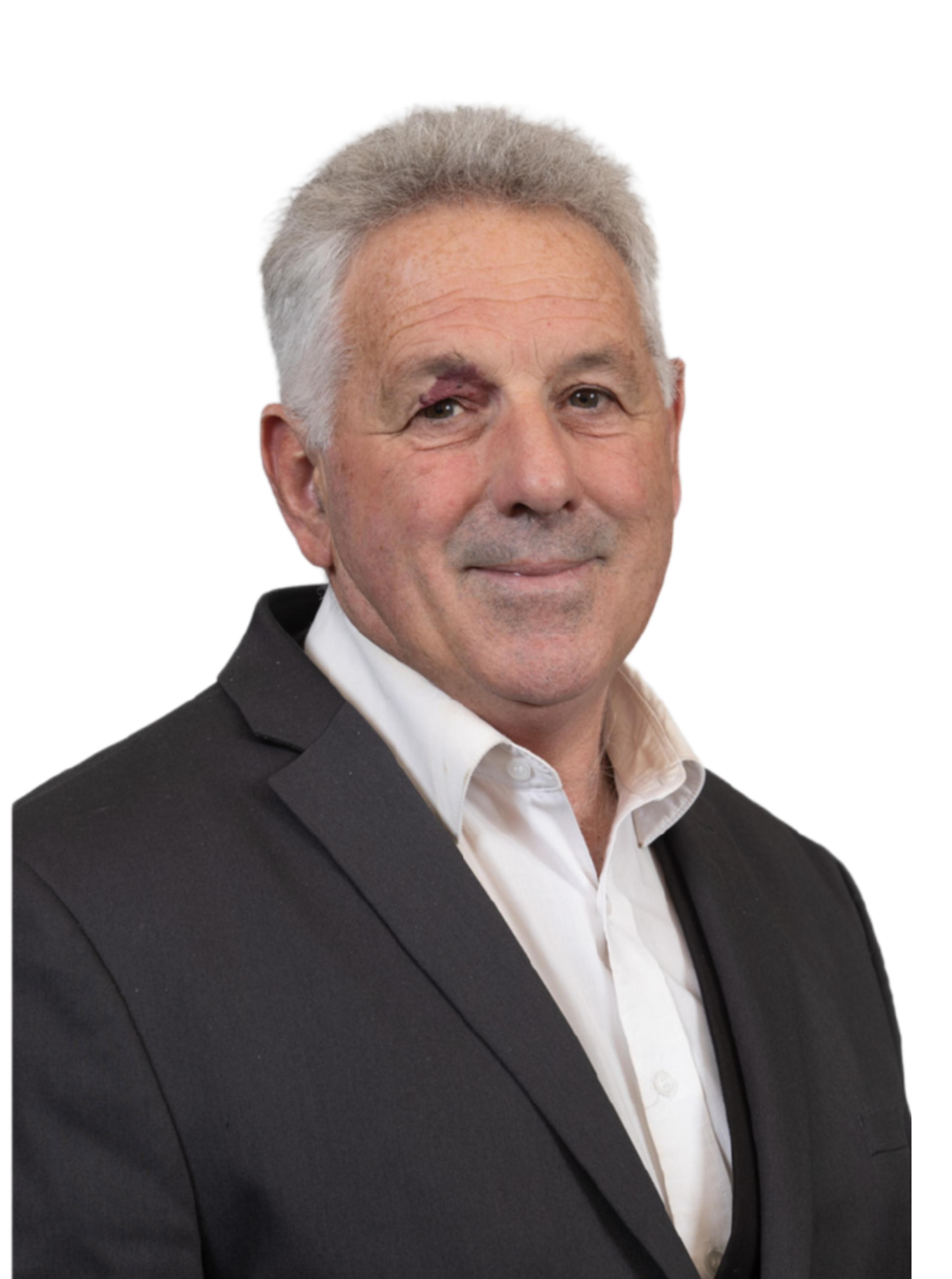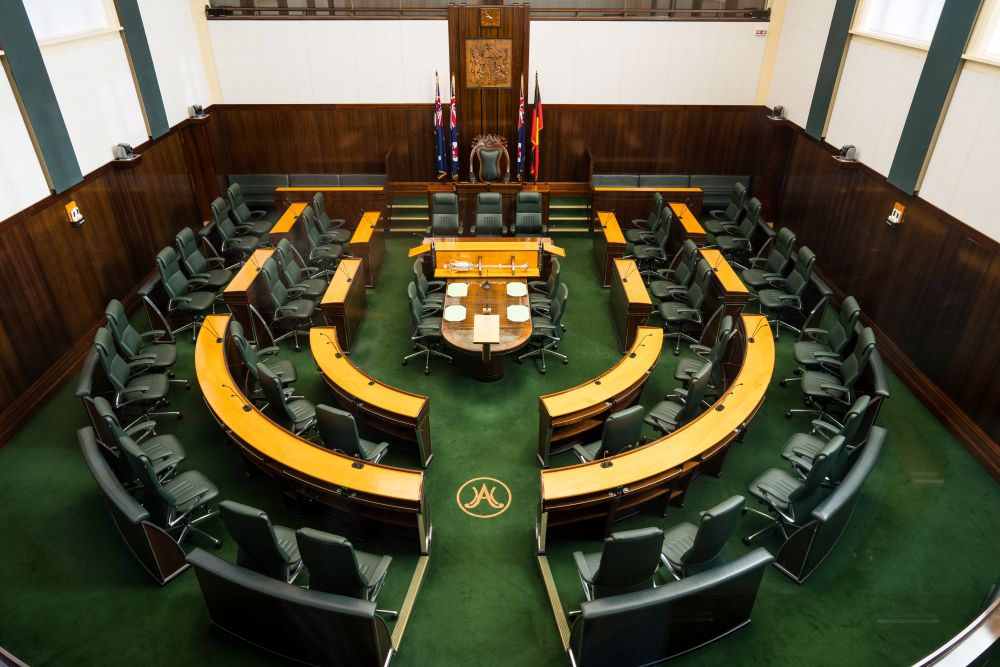Carlo Di Falco MP
House of Assembly

Mr Di FALCO (Lyons) - Honourable Speaker, fellow members of parliament, it is with great honour and humility that I stand here today to deliver my maiden speech. Representing my community and the great state of Tasmania is a privilege I do not take lightly. As I reflect on my journey to this Chamber, I'm reminded of my history, family, and values that have shaped who I am. My story, like many, begins with the sacrifices of those who came before me.
My father was a POW during the Second World War. Originally from Italy, he found himself in Australia as a result of that conflict. He spent three months in basic training and only saw battle for one month before being ordered by his captain to surrender. He was captured in northern Africa by the British and while being held there he learnt Arabic. Just enough to be understood, or so he says. He was repatriated to Australia where he spent time at the Cowra POW Camp. As a POW, he undertook farm duties in Bellingen. After his release, he worked in Urunga. While doing so, he made many lifelong friends. He enjoyed playing social table tennis and we later found a photo of him with the local team. He looked more like a front-row rugby player with his brawny forearms folded across his chest, holding a small paddle in his big mitt. After the war he remained in Australia working in forestry before briefly returning to Italy carrying with him the promises of a better life in Australia.
In his mid-40s, while still in Italy, my father reconnected with a girl he knew in childhood, which resulted in making a decision to be married and returning to Australia for a better life. Post-war Italy was devastated and lacked any opportunity for him. It was in this new land that my family laid down roots.
From a young age, I was influenced by the lessons my parents taught me. This was grounded in our Catholic faith. My family's values centred on hard work, compassion, and social justice. My father worked as a builder's labourer for most of his working life before joining the Hobart City Council as a gardener.
His role involved planning out embankments, which regrettably is no longer carried out. He was very popular with the retired members of the community who kept him hydrated with tea and biscuits. I witnessed my father's commitment first-hand in retirement years through his volunteer work with St Vincent de Paul where he dedicated countless hours to supporting those in need.
He often helped out with gardening and chores for his neighbours. My father always saw Australia as a land of opportunity - a place where putting in a hard day's work could build a better life. Hopefully my work here will enable that to continue.
After the sudden loss of my mother, my father raised three boys by himself - aged 9 and twins aged 6. As my father worked full time, we spent week-days and nights after school at Aikenhead House, which was later called St Joseph's Orphanage. This was in Harrington Street, which is now the home of a number of government departments. This orphanage became an extended family as we were never short of playmates. During our time there, we were taught the importance of boundaries, as some of the nuns were fairly formidable. On the other hand, one of the most amenable was a young nun called Sister Anna Maria who was a standout.
As they were a charitable organisation, they received donations from the public. Some of these were in the form of toys. To incentivise good behaviour, the kids would nominate a toy and to claim the toy a system was created to accumulate enough gold stars for good behaviour. I achieved a full card. However, I left the orphanage before I could claim my Batman suit. The lesson learned is life isn't always fair.
My father, a blue-collar worker with very little education here, sought the best education for his sons that he could afford. He saw education as a passport to prosperity and even though he learnt to drive, he chose not to buy a car as he feared that in the case of an accident he wouldn't be around to look after his children. My father was the finest man I have ever known. My brothers Mario, John and I are so fortunate to call him Dad.
I started my primary school during the flavoured milk era at St Peter's. We practised making necklaces using the foil bottletop caps. I was fortunate to attend St Virgil's College at Barrack Street and later Austins Ferry campus, an institution that further cemented my understanding of service, critical reasoning skills and leadership.
My time in the school cadets was particularly formative, where I learnt not just camping, bushcraft and marksmanship but also the importance of discipline, teamwork and perseverance. During this time I was awarded the rank of sergeant and cook. Some of my crew were critical of my cooking skills, but in my defence, it's not easy to cook with survival rations, is it?
In conjunction with my father and neighbours, my first attempt at trying to make a difference was questioning the usefulness of learning Latin at school. The attempt did not move the principal; on this occasion I was unsuccessful. Hopefully, in this Chamber I can make a difference in other fields.
My first job out of school was as a stonemason's assistant working on the Supreme Court building just across the road from this very Parliament House. I must admit, back then I never imagined that 45 years later I would be sitting inside this air-conditioned Chamber delivering my maiden speech. Life, it seems, has a has a wonderful way of surprising us.
I was moving sandstone so often that I had shiny finger pads where my fingerprints should have been. Because it was sandstone, we had to use lime mortar, which resulted in cracked skin on my fingers which took over 12 months to heal up after I left that job. On chilly winter mornings before work, a coworker and I would climb up on the scaffold and skate along the frosted rooftops.
I spent 43 years employed by the Hobart City Council working across various departments, including Environmental Services, Parks, Mountain Park and the Arborist Unit. It was fulfilling and enjoyable. While working, I maintained the natural heritage of Mt Wellington Park and contributed to making Hobart a liveable city.
We used to enjoy playing practical jokes on each other. One day, while brush cutting and raking grass, we spotted a nearby residence that had a glassed-in verandah. When our service driver arrived, I thought I'd gee him up, so I told him that someone was walking around and appeared to have slumped against the window. I told him to check to see if they were all right. He started walking up the hill calling out if this lady was okay. Meanwhile, the whole crew was stifling laughter behind the scenes. He advanced until he realised it was a dressmaker's dummy.
During most of my time at the council I loved my job and enjoyed the camaraderie of the blue-collar workers and some of the standout supervisors and managers I had the pleasure of working with.
Nine years ago, I became a founding member of the Shooters, Fishers and Farmers Party. This idea originated after our secretary had a conversation at a mainland gun show with New South Wales upper House member, Robert Borzak. My passion for advocating on behalf of rural and regional communities, as well as those who work closely with our land and waterways, has always been a driving force.
When we started out, due to budgetary constraints, we could not afford corflutes, so the mainland gave us generic campaign posters. When we first displayed our signs, my workmates who lived in the area asked where the signs were. I pointed out where they were situated and they claimed they looked like 'no smoking' signs, so even before being elected we were kicking goals in the public health space.
Politics, however, is not an easy road, as you well know. I stood for election eight times before finally achieving success. People would always ask me why I continued to stand and I would reply, 'I guess I don't know when to stop'. That determination to keep going, to keep fighting for what I believe in, is something that I carry with me to this day. I stand here proud to be a Tasmanian, proud of our history, our resilience and our potential. Tasmania is a place of opportunity. I encourage all Tasmanians to embrace that spirit and to create wealth, and to build futures for themselves and their families.
I believe a famous ad from 1980s demonstrates what Tasmanians are capable of, given a chance to succeed. Since this is a jingle, I will spare the ordeal of attempting to sing:
Eric stood above the rest
Roger stood up to the test
Downie made computer sheep
Murphy made a giant leap
You can make it, you can make it, you can make it in Tasmania
Patsy makes our children dream
Sargison his craft supreme
Ayling shot up to the top
Trinder won the Melbourne Cup
You can make it, you can make it, you can make it in Tasmania
I urge this government to stand with industries that are vital to our state's prosperity: racing, salmon, forestry, farming, mining, manufacturing, primary and secondary industries - oh, and I forgot, greyhound racing. We have let opportunities slip before, such as the Wesley Vale Paper Mill, the Franklin Dam, and the unfortunate vandalism of the Triabunna pulp mill. I could name a few others, but let's not make that happen again. These sectors provide jobs, support communities, and sustain our economy, particularly in Lyons. It is through collaboration and respect for these industries that we can secure a strong future for Tasmania.
I stand for commonsense reform and minimisation of bureaucratic regulation for its own sake. I stand for responsible and lawful firearm ownership. There are 38,000 licensed firearm owners in this state. Hunting and responsible firearm ownership is deeply rooted in our rural communities. It is about tradition, wildlife management and respect for the land. I continue to stand up for law-abiding firearm owners and will ensure that their voices are not lost in city-driven debates.
At a time of food insecurity, places like New Zealand and America promote donation of harvested game meat which goes to disadvantaged families. If they can do it, so can we. Many people turn their noses up at eating wallaby. At one stage, wallaby was a staple of Tasmania's dinner tables. If the cost of living becomes more precarious, it may be again.
I recently met a father with two sons who talked to me about the importance of teaching his kids the value of responsible hunting and how it is ingrained in his heritage. This shows how families can bond out in the countryside. These kids get out of their bedrooms, off their computers and out into the beautiful Tasmanian bush. This is reflected in a couple Shooters, Fishers and Farmers bumper stickers:
Casting memories, fishing with mum and dad Kids that hunt and fish don't deal and steal
Tasmanian waterways are a part of our history and our future. I stand for protecting the rights of Tasmanians to fish, whether it's for recreation, putting food on the table, or supporting local businesses. Fishing is a part of the Tasmanian story.
Irrigation is important for high-value crops such as stone fruits, berries and broadacre crops. Water is vitally important for our future development of AI, which requires huge amounts of water for cooling.
I don't support the Marinus Link. The better option would have been to increase hydro water storage, and even look at putting in new dams, which would have been a better use of public money. There is nothing more sustainable than hydro. Hydro power is a better option than temporary wind towers and solar panels producing intermittent power. This would make Tasmania the battery for its own prosperity instead of the battery for the mainland.
While visiting my son, Daniel, in Gippsland, we passed Hazelwood Power Station which was in the process of being decommissioned. I thought to myself that this was nuts. Where is the power coming from to run Victoria? Obviously it is from Tasmania. We simply don't have the excess power capacity, as demonstrated by Boyer's inability to access electrical power in order to retire its coal-fired boilers. You can't have a prosperous economy without cheap, plentiful, reliable power.
I stand for Tasmanian farmers. Our farmers are the backbone of Tasmania's economy. They feed us, they employ us, they keep regional communities alive. I stand for ensuring that they are supported with fair policy, not burdened with unnecessary red tape. Whether you are on a family farm, a fishing boat or in the country town, your voice deserves to be heard here in parliament. Preventative health is key for healthy Tasmanians. I thought loneliness was an issue mainly for older people; I now realise it affects younger people as well. A key priority during my time in parliament will be to support initiatives such as the Men's Shed, community houses and youth hubs.
Many people don't have the confidence to join clubs or groups. A community house gives them the opportunity to meet like-minded people and talk over a cuppa. This, in turn, improves mental health in the community. A problem shared is a problem halved. One of the things that struck me, while visiting my aunt in Italy, was the sense of community. This is clearly demonstrated in the hours after dinner. The whole community would take a leisurely stroll around the town square in groups, talking about their day and connecting with each other. This was known as passeggiata.
Because of the geographical size of Lyons, minor health conditions that could have been dealt with by nurse practitioners or pharmacists if they were given appropriate approvals, currently require hours of driving to see a GP or emergency department. This puts strain on our constituents and our health services. I see the value of preventative health and education in dealing with health crises for rural-regional Tasmanians. They have a much lower life expectancy than metro areas and this needs to be addressed.
In closing, I express my gratitude to the people who have supported me on this journey: my family, friends, and the people of Lyons who have put their trust in me. I want to acknowledge all the Shooters, Fishers and Farmers support crew who helped me all along the way. Without them I wouldn't be here. As I take my place in this parliament, I am committed to working hard, listening intently and representing the values my family and Tasmania have instilled in me. Thank you.

